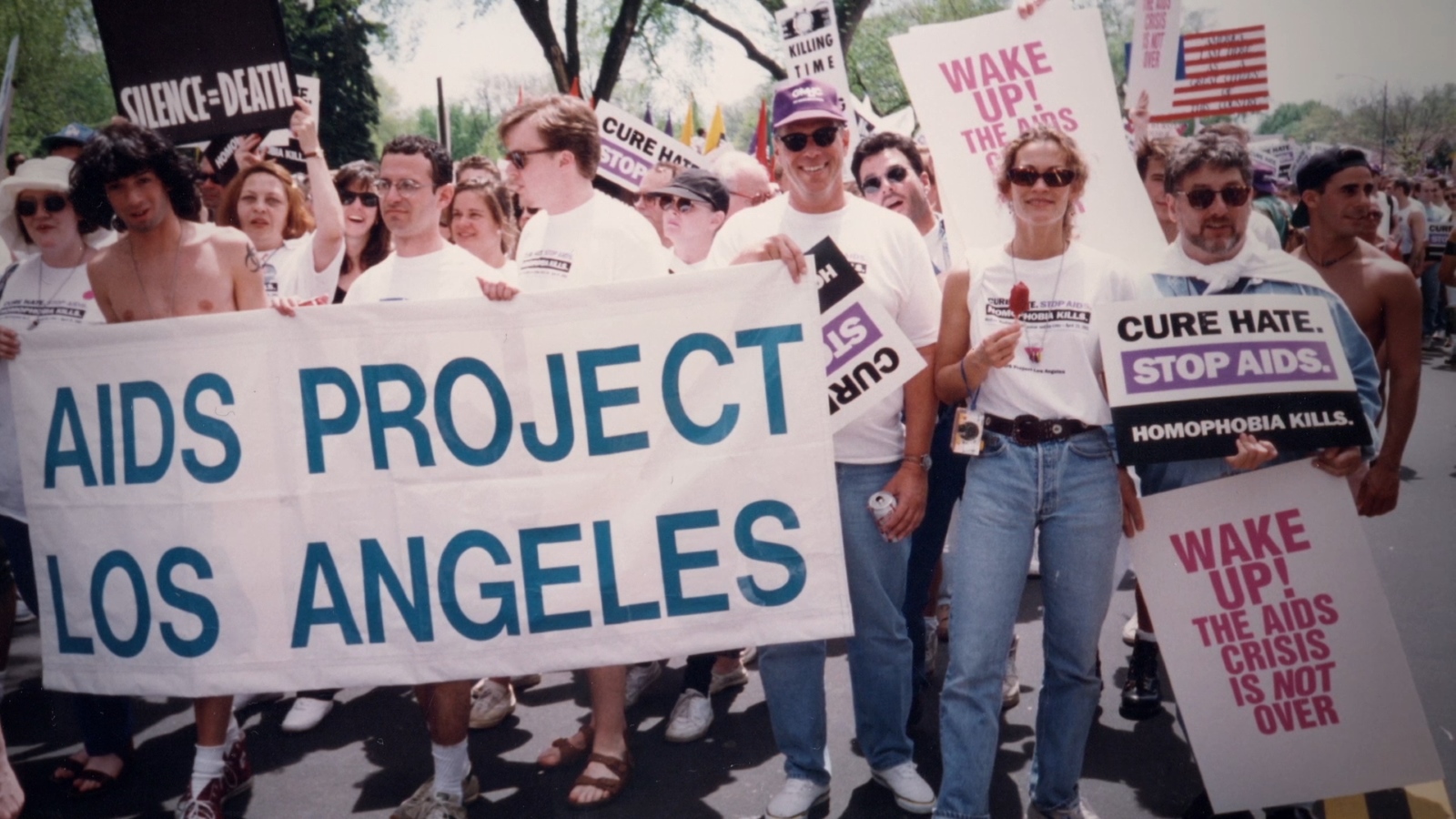Commitment to Life
(USA, 115 min.)
Dir. Jeffrey Schwarz
Commitment to Life isn’t the first documentary to revisit the AIDS crisis circa COVID. It does, however, make clear that attempts to parallel the two pandemics are misguided, although the film shows how a pandemic can bring out both the best and worst of society. Director Jeffrey Schwarz (Boulevard! A Hollywood Story) offers a timely oral history of the AIDS epidemic from those who lived it. The talking heads doc puts the words of the LGBTQ+ community front and centre while revisiting the peak AIDS years.
Commitment to Life doesn’t date itself by bringing up COVID-19, though, and it doesn’t have to. The parallels and contrasts are obvious to discerning eyes. Schwarz situates the AIDS outbreak amid the USA’s rise in conservatism as Ronald Reagan pledged to make America great again through austerity measures. As the embodiment of conservative American values from decades before, he’s an awful foil to a marginalized community in need.
The proximity to the USA’s mishandling of the COVID-19 pandemic simply makes the retrospective unsettling. There difference with AIDS was one of apathy and prejudice, whereas COVID-19 mostly drew a swift and uniform response. (Except, of course, from the White House.) But while the world has yet to find a Hollywood ending to AIDS, Commitment to Life explores a Hollywood story that gave the queer community hope in a time of need.
A Star-Studded Affair
The film takes some time to get going, offering a thorough account of the mysterious early days of AIDS. Cue some ominous news reports about a strange unknown virus rippling through the gay community. Schwarz cuts these stories in succession and reiterates how a narrative wrongly painted AIDS as a “gay disease.” Archival clips stress the homophobia that ran rampant amid the uncertainty of the disease’s transmissibility. Survivors recall in contemporary interviews the wrenching experience of seeing loved ones die alone. Others speak of threats of isolation when an early solution was simply to quarantine the sick. Their words about potentially being cut off from care and supports during a time of need make the boredom COVID-19 lockdowns rather minor.
The talking heads recall with dismay how silence shrouded the White House while the public worried about the virus. The ideological justification for institutional inaction on AIDS research, prevention, and treatment makes the archival images of lives lost poignant no matter how frequently one’s heard this story before. What differs, though, is the optimism that Commitment to Life finds in a community coming together.
The film tells how celebrities used their clout to raise awareness. Minister Steve Pieters revisits his landmark interview with televangelist Tammy Faye Bakker. Fans and celebs recall the breakthrough of Rock Hudson disclosing his affliction with the disease. Meanwhile, Susan Bluestein, widow of Midnight Express star Brad Davis, shares the painful memory of her husband concealing his illness due to fear. On the other hand, stars like Madonna, Bette Midler, and especially Elizabeth Taylor used their clout to sway the public and pressure Reagan.
The film shares the events through which celebrities and activists raised funds and awareness through the star-studded Commitment to Life galas thrown by AIDS Prevention Los Angeles. (APLA Health is one of the film’s production companies.) Moreover, these looks back illustrate the effort to correct a narrative. The AIDS fundraisers restore joy to a community forced to live in fear, whereas events like the AIDS Walk and, especially, the campaigns by ACT UP fearlessly emphasized visibility.
Correcting the Narrative
Commitment to Life also takes a cue from the interviewees to straighten out the past. The film acknowledges that the media coverage of AIDS chiefly sympathized with white gay men. In reality, it shows how much AIDS ripped through Black communities with the skewed media coverage partly to blame. Schwarz gives space and credit to figures like Jewel Thais Williams, whose discotheque Jewel’s Catch One (the subject of another documentary) was at the frontline fighting the epidemic.
Similarly, the film asks what Hollywood was doing to fight the stigma onscreen while throwing glitzy fundraisers offscreen. The doc looks at the tired gay stereotypes of AIDS movies in the late ’80s and early ’90s, earnest attempts that did little. However, the film credits Hollywood for taking a step in the right direction with Philadelphia. While the film that earned Tom Hanks his first Oscar is imperfect, the doc gives it fair credit as a mainstream turning point for AIDS awareness. Schwarz’s film recognizes a time when allies risked careers for a cause. It might be taken for granted nowadays, but the doc respects these films that earnestly tried to make a difference.
Commitment to Life occasionally evokes an air of branded content as many APLA members speak to their history in their own production. However, the absence of an arm’s length removal remains notable. Queer people were and still are at the front lines of the fight against AIDS. This film salutes the people who fought for a community in need, and one can only share the appreciation.
Commitment to Life screens at Inside Out on Saturday, May 27 at TIFF Bell Lightbox at 2:00 pm and online beginning May 28.
Find more documentary highlights here.












